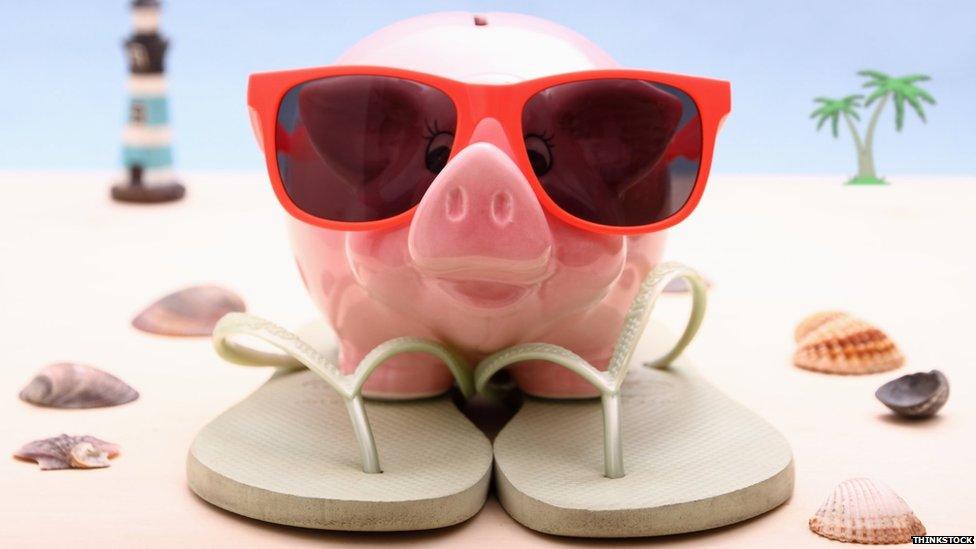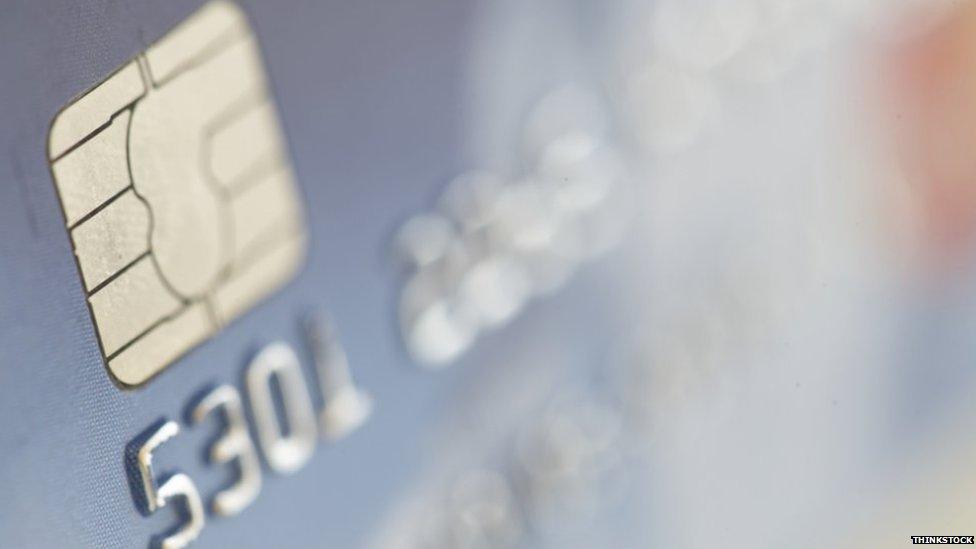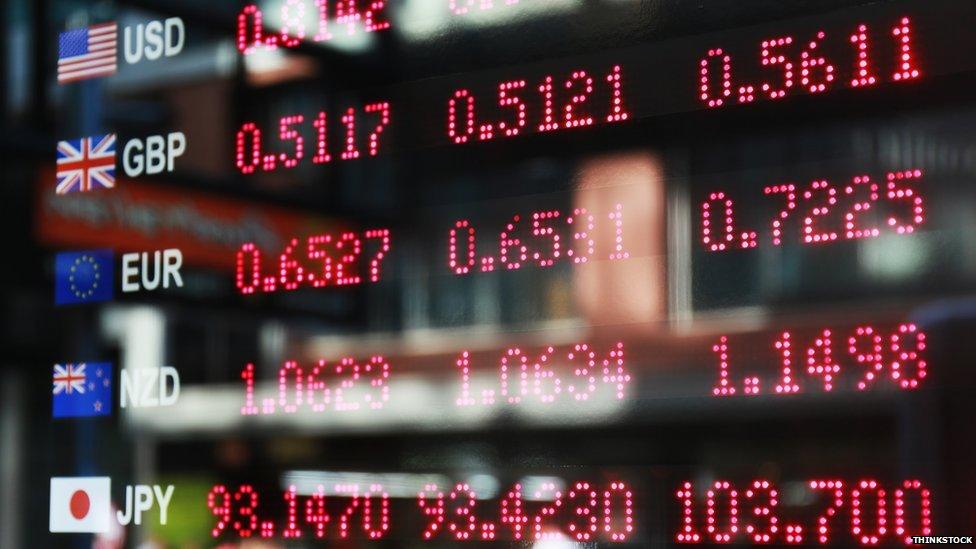How to get the best exchange rates for your holiday as the pound falls
- Published

If you're taking out money for a holiday abroad this week you might get a shock.
The pound is worth far less than before the EU referendum, because traders are worried about the UK's future outside the European Union.
For example, if you took £1 to a currency bureau today, you'd get around $1.30. That's the worst exchange rate in 31 years.
But there are tricks to get the most from your money.
1. Use a card
"The very best way to spend abroad isn't exchanging currency at all", says Martin Lewis from moneysavingexpert.com.
He recommends using a specialist credit card that gives you the same rate abroad as the banks get.

"Make sure you pay it off in full at the end of every month," he warns.
"Otherwise the interest cost dwarfs the currency exchange gain."
And be careful using a standard credit or debit card abroad, because you'll have to pay commission every time you withdraw money.
2. Use a comparison site
There are plenty of comparison sites showing where to get the best rates, both online and on the high street.
"Euros and dollars are what you have the most competitive rates in, so it's definitely worth checking online," says Simon Calder, travel editor of The Independent.
To find the best rates and lowest fees you could use websites like Moneyfacts, external, or try firms which are members of the Association of UK Payments Institutions (AUKPI).
"The best plan is to prepay online and pick them up at the airport," says Simon.
"Some providers will even post them to your door, though you'll have to pay a fee."
3. Lock the value now
Travelex and Tesco are among firms that will let you buy at today's rate to collect later.
That means your money is protected if the rate falls before you go on holiday.
And if the rate goes up you can cancel for free, as long as you don't do it in the last 24 hours before you leave.
But Simon Calder warns these deals won't be around forever.
"A lot of canny travellers used this lock in to their advantage in the run-up to the referendum, anticipating that rates would fall.
"Those deals are going to become rarer as providers count their losses."

4. Haggle
If you're exchanging a lot of money, it's worth haggling.
"I do that quite a lot," says Simon Calder.
"If I need money for an expensive trip, I'll ask, 'How much are you going to charge for $1,000?' and then ask them to raise it. Sometimes they'll say no, but often they will give you a couple of cents."
It's not going to buy you a fancy meal, but it could mean an extra couple of cocktails.
Simon says it's not worth trying your charm on anything less than £500.
5. Get it when you've arrived
Some currencies are actually cheaper to exchange abroad.
"I can think of at least four countries - Croatia, Bulgaria, Turkey, Egypt - their currencies are always cheaper abroad than they are here because they're seen here as exotic currencies," explains Simon.
"No bureau de change here is going to offer a better rate."
With more competitive currencies like the dollar and euro it's always worth exchanging before you leave, though.
And don't be tempted to leave it until the airport - you're bound to get a rubbish rate.
Find us on Instagram at BBCNewsbeat, external and follow us on Snapchat, search for bbc_newsbeat